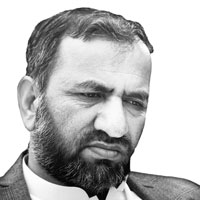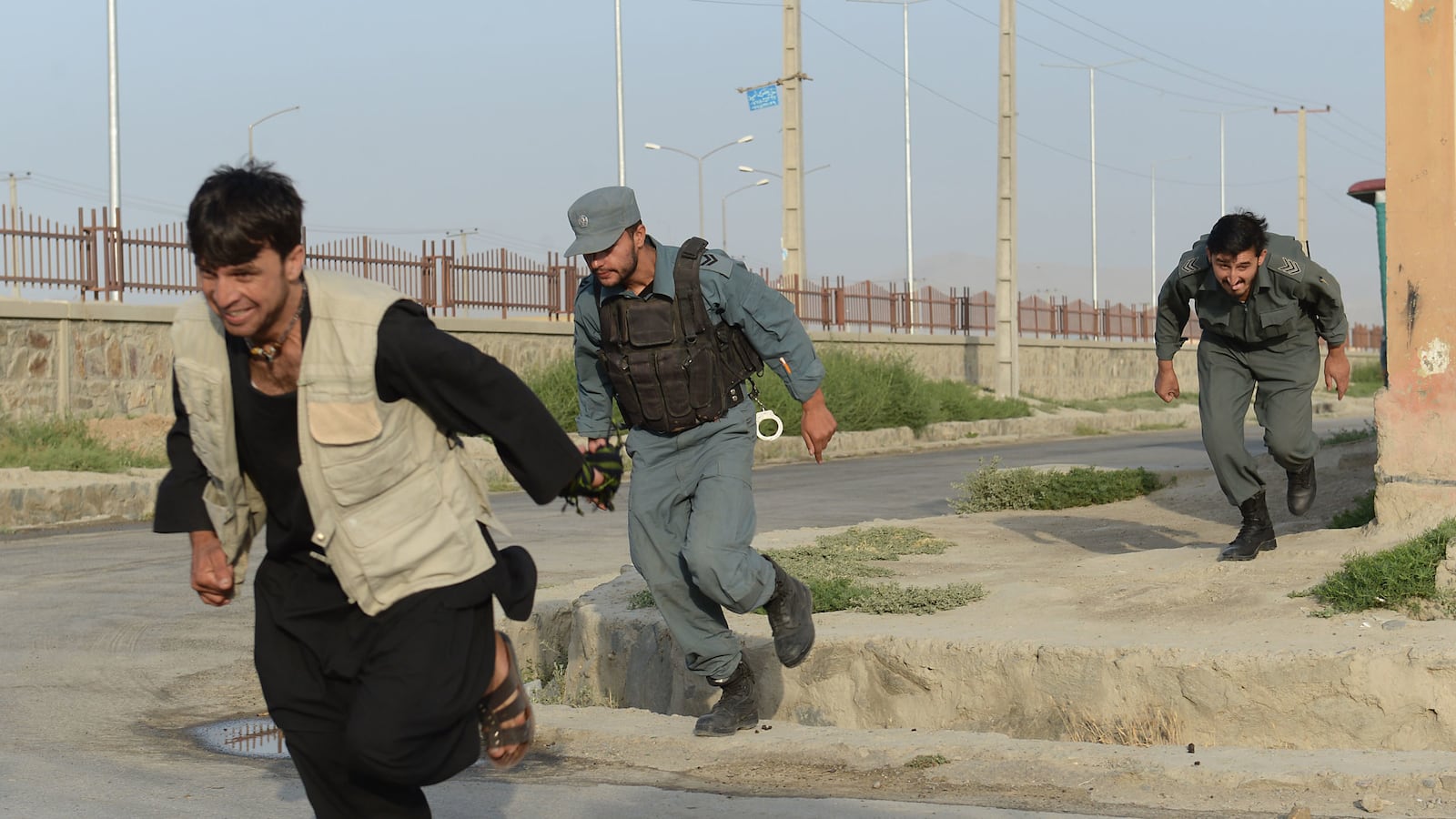ISLAMABAD, Pakistan — The Taliban attack on the Kabul airport this morning may be linked to a new and dangerous development on the ground in Afghanistan: a flood of fresh fighters from the ranks of the Pakistani Taliban, known as TTP, on the other side of the frontier.
I was able to reach a senior Afghan Taliban commander operating in Kabul as the airport attack was still under way, and he told me that “big numbers of the Pakistani Taliban have crossed the border to Afghanistan,” enabling the Afghan Taliban to “deploy rapidly in massive numbers all over Afghanistan.”
“That is why we have more manpower this year,” commander Qari Talha told The Daily Beast over his mobile phone. “We are using Pakistani Taliban in big numbers for collective attacks.” He said they had deployed on the hotly contested battlefields of Helmand province, in Kabul and in other parts of the country. “We send them for big ground attacks and spectacular attacks in cities,” he said, and current fighting in Helmand is part of that new offensive.
The strike against the Kabul airport early on Thursday morning involved four fighters armed with automatic rifles and rocket-propelled grenades firing from the top of a nearby building under construction. According to statements from the Afghan government, after about four hours all of the attackers were killed and there were no government casualties. But as the battle raged near the edge of the runway all flights had to be diverted to other cities. It has not yet been determined if the attackers included Afghans, Pakistanis, or both.
As The Daily Beast reported in early May, border security was badly weakened by the Central Intelligence Agency’s decision to dismantle its front-line Afghan counterterrorist forces in the southern and eastern parts of the country. The chaotic aftermath of the Afghan presidential elections has complicated the situation, and U.S. military commanders are saying American counterterrorism forces may be needed in Afghanistan long after the supposedly final U.S. troop withdrawal in 2016.
“Despite the increase in the numbers of Afghan security forces, actually the Taliban are able to penetrate very easily into Kabul and other cities,” Qari Talah boasted.
The Kabul airport handles both civilian and military flights, with military operations taking precedence, making it “a very appealing and legitimate target,” said Talah.
Another Afghan Taliban source says that the Pakistani army’s operations trying to suppress the TTP in the tribal areas along the Afghan border unexpectedly pushed more and more TTP fighters into Afghanistan, where they continued their violent jihad, seen by them as a religious duty, against Afghan forces.
The same Afghan Taliban source says that his group’s original strategy was to conserve its forces in 2014, looking forward to intensified fighting against a weaker Kabul regime in 2015 and afterward as the United States continued to draw down its forces. But the sudden influx of Pakistani fighters has led the Afghan Taliban to step up their collective attacks on multiple targets as the fighting season gets underway.
The situation is further complicated by the attitude of the Pakistani military, particularly the intelligence branch known as the ISI, which has tended to see the Pakistani Taliban as dangerous to Islamabad, which they certainly are, while viewing the Afghan Taliban as “good,” or at least as potentially useful over the long run. Pakistan traditionally has hoped to install client governments in Kabul, even if they are radical jihadis, in order to keep Indian and other foreign influence there to a minimum. Afghan officials have argued that if the Pakistanis would recognize that all Taliban are essentially the same, and essentially dangerous, the war against them on both sides of the border could be won in short order.
Retired Pakistani Army Col. Muhammad Nazir, who is familiar with operations along the frontier, says that due to the Afghan election crisis, political instability and NATO troop withdrawals, Afghanistan is weaker and the Taliban are able to take advantage. “All this boosts the morale of the Afghan Taliban,” says the colonel.
A senior Afghan security officer who does not want to be named also says the election crisis has exposed Afghan security forces to greater danger and impaired their ability to operate. “Forget about bringing peace and restoring security in the countryside,” he said. “We could not secure Kabul City.” And this after 13 years of war and American and NATO support.
What happened at Kabul airport was a classic case in point. “It was very obvious that a building under construction just next to the Kabul airport runway was an ideal spot for the Taliban,” said the security officer. Indeed, a similar attack was carried out just last year. “But who cared among the people at the Afghan interior ministry and defense ministry?”
“It is a big blow for Kabul airport and for Afghanistan, and we are sure that international airlines will stop flying and cease operations in Afghanistan,” the security officer said. Thus far there are no official indications that will happen. But the comment is a sign of the pessimism spreading through the ranks of the security forces. “The elections brought instead of stability, instability to Afghanistan,” said this official, “and it will never end.”





